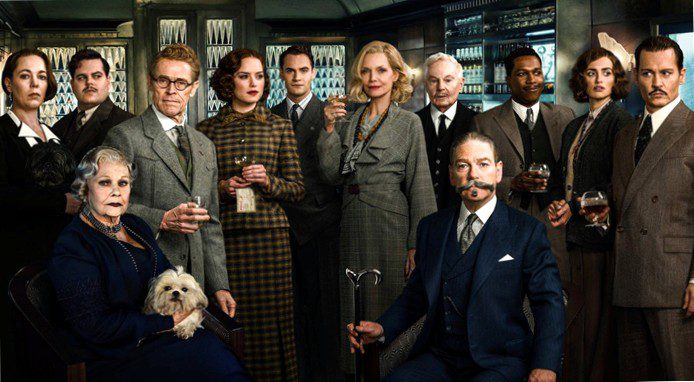
The year is 1934: After the Belgian master detective Hercule Poirot (Kenneth Branagh "Dunkirk") has solved a tricky case in Jerusalem, he sets off on the Orient Express from Istanbul on his return journey to London. Among his fellow travelers, Poirot finds interesting human subjects to study, from the cagey governess Mary Debenham ("Star Wars"-star Daisy Ridley) to the Russian princess Natalia Dragomiroff (Judi Dench) to the shady businessman Edward Ratchett (Johnny Depp). The next day, one of the 13 passengers is dead – and Poirot soon has to realize that each of the passengers would have a motive .
Hercule Poirot on a Murder Hunt
Crime writer Agatha Christie, the British Queen of Crime herself, created the quirky investigator with the iconic moustache and a fondness for hot chocolate. Since 1916, she has sent him on a murder hunt in more than 30 novels. Murder on the Orient Express is one of the detective's best-known and most sensational cases. Now Kenneth Branagh, who has made a name for himself primarily with Shakespeare adaptations, is setting out in 2017 to make a fresh film version of the material that was last seen on cinema screens in 1974. The art of this remake lies in wringing new facets out of a story whose unusual outcome might be familiar to many.
Enormous showmanship in setting and cast
Kenneth Branagh has not skimped on the setting, costumes and cast. He captures the period color in Jerusalem, Istanbul and the drive through the Yugoslavian countryside perfectly. And even the luxurious Orient Express invites you to linger with all its richness of detail. That I've seen "Murder on the Orient Express".. was even able to enjoy in the film screening on 70-mm film, of course, highlights these show values even more.
Unlike other film adaptations of the crime story, the setting – even after the train gets stuck in a snowdrift – is not limited to compartments and interiors of the train. The latter are very skillfully captured on film from a bird's eye view, which lends the luxury vehicle something spatially oppressive. There are also views of the outside world, where a rescue squad is working flat out to put the passengers out of their misery.
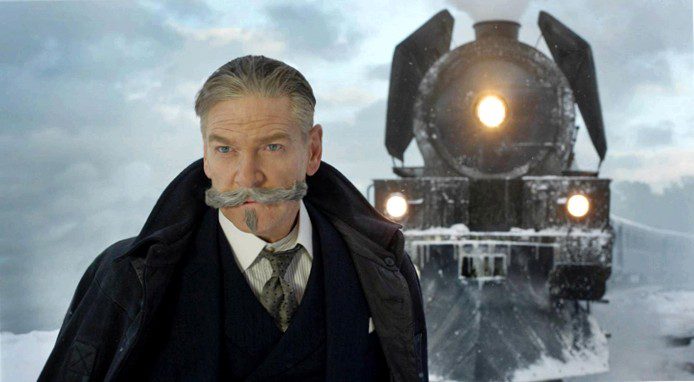
Hercule Poirot (Kenneth Branagh) must solve his latest case. Image: © Twentieth Century Fox 2017
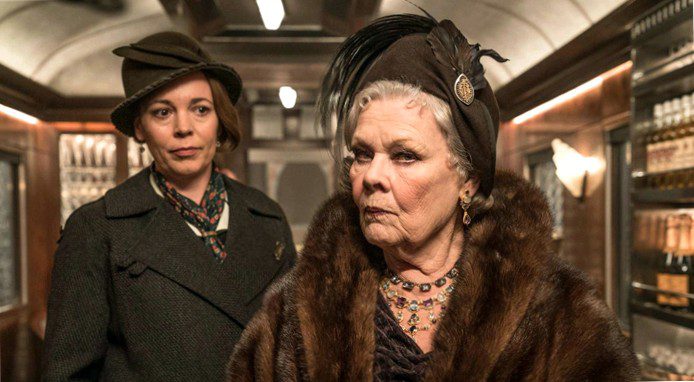
Everyone is a suspect: both Princess Dragomiroff (Judi Dench) and her maid Hildegard Schmidt (Olivia Coleman, left). Image: © Twentieth Century Fox 2017
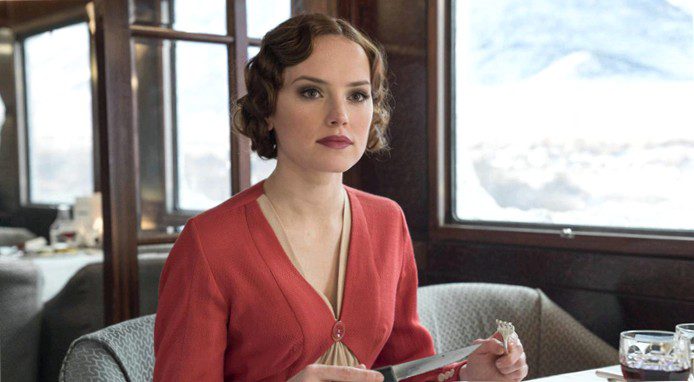
Even governess Mary Debenham (Daisy Ridley) has something to hide. Image: © Twentieth Century Fox 2017
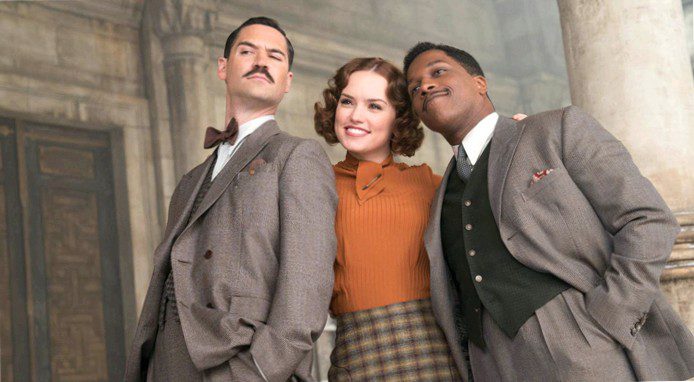
In casting the train passengers, Branagh goes for top quality. Numerous Oscar winners and nominees are part of the cast, prettying up the novel's characters in a way fit for the movies. Dame Judi Dench gives the Russian princess, described in the book as abysmally ugly, an aristocratic bearing. And the Swedish missionary with a sheep's face becomes a charming, if depressed, Penelope Cruz as usual. Johnny Depp, who visibly enjoys playing the delightfully sleazy crook Ratchett, is also visibly rejuvenated compared to the novel character.
Remarkable changes to the novel by Agatha Christie
Branagh also spices up his Murder on the Orient Express with a dash of action on. In the novel, Poirot solves the case only with the help of his powers of observation, questioning of the passengers and, of course, with the help of his gray matter. It's different in the film, which picks up pace with a car chase, a stab in the back and even a shot at the detective. Apart from a strangely overdrawn, punchy Count Andrenyi, another passenger on the train, the action is used so discreetly that it still does justice to the original.
The most notable change is Branagh not only making the British army officer Arbuthnot a doctor (thus merging two characters), but giving him a black skin color. This provides for additional conflict on the train. Even in the novel, which is set in 1934, there is an underlying racism: for example, when Monsieur Bouc, the director of the railroad company, immediately realizes that the Italian passenger must have committed the murder.
Branagh, however, turns this around: His Bouc (Tom Bateman), a young daredevil in the film, asks the master detective for help, so that the colored Arbuthnot or the kind-hearted Italian are not automatically prejudged. And that's finally the tipping point that lets Poirot take over the case.
Star magic is lost in the large ensemble
While the film's cast of characters is large and consists of all classes and walks of life. But due to the abundance of secondary characters, the viewer can't really connect to any of them. Acting greats like Judi Dench and Michelle Pfeiffer do a good job, but unfortunately can't develop multi-dimensional characters in their few scenes. This task clearly lies with our investigator.
With the master detective, however, for me there is another minor sticking point in what is in itself a successful classic film adaptation. Kenneth Branagh could not resist casting himself as the master detective. He also gave him such a powerful mustache that it's hard to focus on anything else in scenes with the sleuth. Branagh makes Poirot a sometimes very sentimental investigator, whose unswerving belief in clear categories like good and evil is shaken by this case.